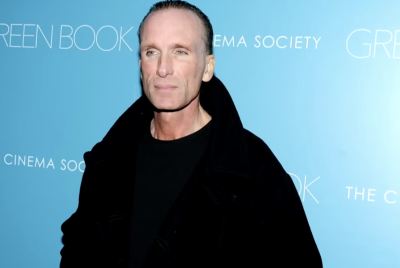Lily Allen Fuels Cheating Rumours About Ex-Husband — Critics Claim 'She Sexually Assaulted Zoe Kravitz'
West End Girl mixes autofiction and accusation — the music is personal, but the public record is partial and contested.

Lily Allen's new album has reignited a public feud and exposed how pop's confessional turn collides with unresolved personal allegations.
Lily Allen's West End Girl, released on 24 October 2025, contains explicit lyrics that many listeners interpret as alleging her former husband, David Harbour, breached the couple's agreed boundaries during their marriage.
Allen has framed the record as a form of 'autofiction,' art that blends fact and invented detail, but fans and critics are split between sympathy, scepticism, and moral outrage. The row has also revived an old dispute between Allen and Zoë Kravitz about a non-consensual kiss, with some online commentators invoking that episode to discredit Allen's account.
New Album's Lyrics Allege Betrayal and Boundary-Breaking
West End Girl is a combustible, lyrically direct return for Allen after a seven-year recording hiatus. In interviews, she told British Vogue and Perfect Magazine that the record was written in late 2024 as a way to 'process what was happening' in her life following the breakdown of her marriage to David Harbour.
Allen concedes the songs 'fuse fact and fiction,' but several tracks allude to infidelity, broken promises, and sexual betrayals that many outlets interpret as aimed at Harbour.
Songs such as 'Pussy Palace' and 'Madeline' namecheck scenes and details; from sex toys found at home to references to open relationships turning sour, which critics say read like a catalogue of humiliation and discovery.
Some review describes the album as an 'autopsy of marital betrayal', noting the tension between catchy production and unflinching lyricism. Allen's stated aim, according to her interviews, was not merely to shame but to work through anger and grief in art.
Fan Backlash and the Revived Kravitz Episode
Reaction on social platforms has been volatile. While some fans praised Allen for candidly addressing betrayal, a sizeable and vociferous minority pushed back, not only disputing the interpretation of lyrics but also resurrecting the 2018 incident between Allen and Zoë Kravitz, when Kravitz described a kiss with Allen as an 'attack' rather than a mutual encounter.

Kravitz's remarks on Watch What Happens Live were widely reported at the time and remain the clearest on-record account of that encounter.
Certain social commentators have used Kravitz's 2018 comments to argue that Allen's moral position is compromised, posting statements along the lines of 'she sexually assaulted Zoë Kravitz, who cares,' a phrase that has circulated on forums and in comment threads.
It is crucial to separate what is on the public record from editorial shorthand: Kravitz characterised the episode as Allen having 'attacked' her with a kiss; she did not launch a criminal complaint, and subsequent reporting treated the exchange as a contested and awkward celebrity anecdote.
The current backlash demonstrates how quickly online discourse can collapse nuance into binary judgments: some users treat Allen's writing as therapeutic truth-telling, while others see it as weaponised revenge or hypocrisy. That polarisation intensifies when past disputes are dredged back up as character evidence in contemporary rows.
The Limits of Autofiction and Public Accountability
The West End Girl controversy raises broader questions about the ethics of memoir-style songwriting and the responsibilities of public figures who write about private lives. Allen herself acknowledges the record is partly fictionalised; interviewers record that she used autofiction to protect certain people and to dramatise her emotional truth.
Critics and legal commentators note that artistic license has limits when songs explicitly identify or strongly imply real individuals and behaviours.
At its heart, this is a story about how celebrity relationships are processed in public, through songs, interviews, and social media, and how that processing affects other people who are drawn into the narrative. Allen's album will likely stand as a cathartic entry in her catalogue; for those who read the lyrics as an indictment, it is also a public airing of alleged betrayals.
For critics and those invoked in the songs, it is an unresolved swirl of claim and counterclaim that the media and public will parse into differing moral verdicts.
© Copyright IBTimes 2025. All rights reserved.





















